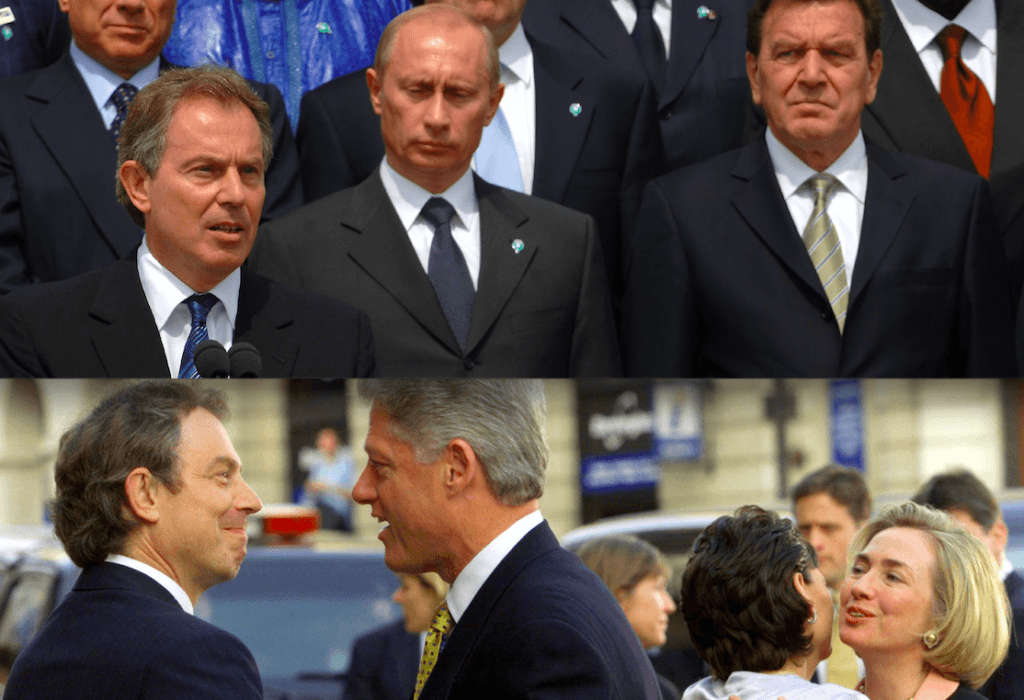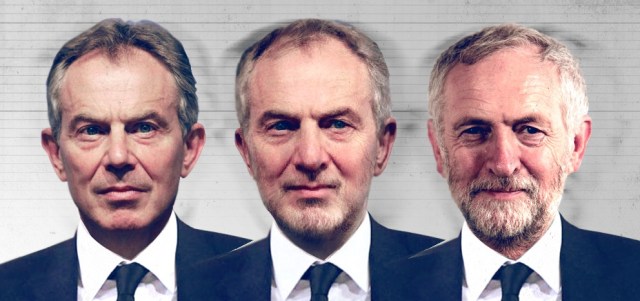Artwork by Krieg Barrie

This time last year the American media was focused on the death of the Republican Party. After November’s elections it turned to the destruction of the Democratic Party that was at stake. As of this month they appear to be focussed back on the imminent demise of the Republican Party. The same story has played out in Britain. Three months ago the British media was rubbing its hands over the impending death of the Labour Party. Then after the election it was the end of the Conservative Party. Who knows whose demise can be expected tomorrow?
The tides of democratic politics have always come in and out, but never have they done so with such speed or pitch. It is hard not to celebrate a part of this. For as long as the franchise has existed British and American politics has been regularly poisoned by the perception that there is an ‘elite’ or ‘establishment’ that makes decisions over the heads of the voters. The idea that everything that matters can be cosily arranged in ‘smoke-filled’ (more likely detergent-scented) rooms and that nothing really changes has a strong pull on popular grievance.
The rise of Jeremy Corbyn, like that of Donald Trump in America, is – among other things – an angry shout against this trend. When people criticise either Corbyn or Trump for their lack of political experience they miss the point. Both Trump and Corbyn are the result of generational forces which are satisfied to throw a stun-grenade into the political class and find justifications for their action after the fact.
In America the relevant parts of the right now find themselves called upon to give ever-more frequent, as well as better, answers for their actions. In Britain the people who supported Corbyn have seen a different phenomenon occur. For the time-being the demands for explanations have gone away. Because Corbyn did not lead the Labour party to utter collapse in June’s unwise general election, the demise or splitting apart of the Labour party did not occur. Instead the Labour party is more united this year than it was last year, though it is now cohering and unifying around what was until very recently recognised to be one of the wildest extremes of British politics. If there is to be a reckoning over this – as there is bound to be – it has been delayed longer than that on the other side of the Atlantic.
It shouldn’t be especially surprising that Britain’s grenade-throwers emerged on the political left. The political right in Britain is – even, or perhaps especially, after the Brexit vote – a relatively unified political force. Its views on free trade, immigration and education – for instance – remain fairly uniform. On the British left, however, a period of correction would appear to have been needed since at least the 1990s.
A portion of the left was never happy or content with the era of Tony Blair, any more than Bernie Sanders voters were ecstatic about the Clinton era. Blair and Bill Clinton, like Gerhard Schröder in Germany, inhabited and encouraged a language of political moderation and ardent positioning on the centre-left, even as they portrayed any and all political opponents as motivated not so much by wrong-headedness as by deep evil. The positioning was not all verbal. These leaders all appeared to signal a genuine new era on the left, with a political movement finally at peace with the free market as well as the free movement of peoples in an era of increasing prosperity.
There were two blows to this apparent consensus: one global, the other personal. The global blow came with the 2008 financial crash – a crash which also exacerbated the concern that a certain level of free movement created cultural as well as economic draw-backs for any local labour force.
But perhaps even that could have been weathered had the personal not intruded. Until Bill Clinton’s retirement former Presidents in the US made some money out of office by writing their memoirs. None had previously achieved Clinton’s level of wealth by giving speeches which earned him in an hour more than the average worker could hope to save in a lifetime[1. CNN calculated that “Hillary Clinton and her husband, former President Bill Clinton, combined to earn more than $153 million in paid speeches from 2001 until Hillary Clinton launched her presidential campaign last spring.” Report from 6 February 2016.]. Tony Blair watched his friend’s amassing of Croesus-like wealth and appeared to think it was good thing, spending his time after office with the apparent sole aim of joining the super-rich in as short a time as possible[2. Estimated to have a personal wealth of £60 million (a Daily Telegraph investigation from June 2015), there has been a particular complaint that he has made his money by consorting with the wrong kind of people. The Daily Mail ran a series in March of last year that set out to tell “the sickening truth about how Blair’s made millions from doing dirty deals with dictators”.] Worse was the behaviour of Schröder, who appeared to have signed up to work for Gazprom even before he had left his elected office,[3. See The Guardian from 13 December 2005 when the former German Chancellor abruptly resigned as his party’s leader and walked into a lucrative job with Russia’s Gazprom and, more recently, the Financial Times of 13 August 2017 reported: “Gerhard Schröder, the former German chancellor, looks set to deepen his already close ties with the Russian energy sector, after he was nominated as an independent director to the board of state-controlled oil company Rosneft…Mr Schröder’s appointment to a senior role in a commercial project he had championed while in government proved highly controversial at the time, with many German politicians accusing him of an ethical lapse. He has consistently denied he had done anything wrong.”] and rewarded his new employer in Moscow by reprimanding Eastern European leaders whenever they expressed concerns about Vladimir Putin and his potential direction of travel.

The backlash against this was always bound to be not only considerable, but personal. And these events could have churned up no better lodestar than a ploddingly consistent backbench MP, who never made his peace with the post-1980s model of western capitalism (or the general consensus against the use of political violence) but who had said the same things in his obscure corner of politics for more than a quarter of a century. If everybody else was only out for themselves, what reason other than deep personal integrity (and potential rightness) could be found to explain the career of Jeremy Corbyn? And who better to support at such a juncture of confusion and self-interest?
Perhaps the Labour party’s remaining moderates are waiting for an accident. Perhaps they are waiting for a miracle. Yet in the process they have actually proved one of the fears of many Corbyn supporters – which is that political survival appears to interest politicians more than any residual sense of what is right or wrong. Moderates in the Labour party have chosen their poison, and will have to account for it one day. But in doing so they have also dug the trench of public cynicism several feet deeper.










Join the discussion
Join like minded readers that support our journalism by becoming a paid subscriber
To join the discussion in the comments, become a paid subscriber.
Join like minded readers that support our journalism, read unlimited articles and enjoy other subscriber-only benefits.
Subscribe